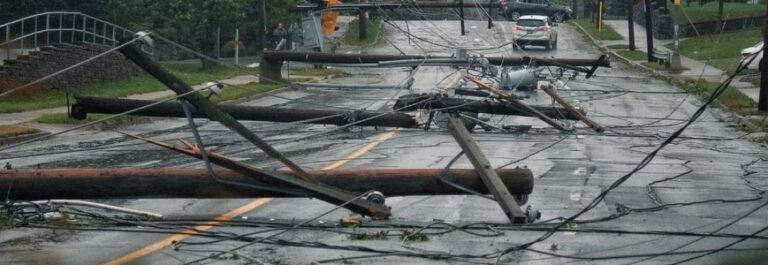Minister Tory Rushton’s announcement that Nova Scotia Power Inc. will need to burn more forest biomass to increase its renewable electricity quota is evidence that the province is playing politics rather than trying to reduce greenhouse gas emissions.
“Burning forest biomass to generate electricity is not cleaner than burning coal,” says Tynette Deveaux, with Sierra Club’s Beyond Coal Atlantic campaign. “The fact that Minister Rushton would say it is, should be a red flag for all Nova Scotians.”
Study upon study has revealed that burning forest biomass to generate electricity emits far more carbon dioxide than burning coal.1 At the rate that Nova Scotia’s forests are being harvested, it’s questionable whether the province’s forests are even renewable.
“We need to re-examine the assumption that trees and forests will grow back to replace what’s been taken,” says National Programs Director Gretchen Fitzgerald. “Forests have been heavily degraded by industrial forestry companies that put profits before workers or biodiversity. We can no longer take for granted that we can regrow healthy forests, particularly in the already-changing climate.”
“If I had to guess, I’d say the government is hoping this announcement will win popular support in ridings that are heavily reliant on the logging industry, including the Premier’s riding,” says Fitzgerald. “But at the end of the day, the fact remains that the science doesn’t support it.”
Nova Scotia has plenty of sustainable wind and solar energy resources that can be harnessed to generate renewable electricity—and create good jobs right here at home. The Houston government is touting Nova Scotia as the “would-be Saudi Arabia of the offshore wind world”2 and making plans to offer leases for 5 gigawatts of offshore wind for green hydrogen production.
“If we were to use offshore wind wisely,”3 says Deveaux, “Nova Scotia could absolutely get off coal and other fossil fuels—as well as biomass. Nova Scotia Power should be held accountable for its failure to reach the 40 percent renewable energy target for 2020–2022. The government has the power to fine the utility up to $10 million a day for its failure to comply, but instead it’s telling NSPI to burn more trees.”
- Does replacing coal with wood lower CO2 emissions? Dynamic lifecycle analysis of wood bioenergy – IOPscience; Biomass Is Not Carbon Neutral – Beyond Climate Promises; Natural Resources Canada GHG Calculator confirms Nova Scotia forest bioenergy schemes are worse than coal
- Hansard NS Legislature October 18, 2022
- Let’s Use Wind Wisely – Beyond Climate Promises
Media Contacts:
Tynette Deveaux
Beyond Coal Atlantic Campaign Coordinator
Sierra Club Canada
tynetted@sierraclub.ca
Gretchen Fitzgerald
National Programs Director
Sierra Club Canada
gretchenf@sierraclub.ca




